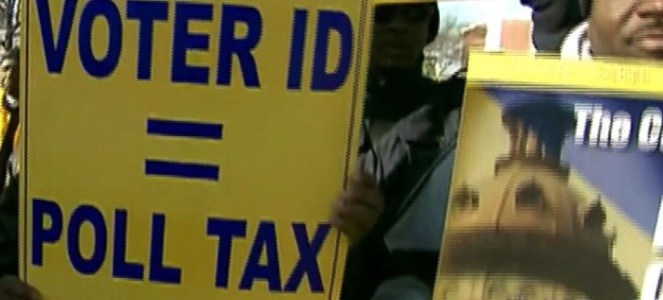
Having to battle Ohio voter ID is particularly a burden for low income citizens and other vulnerable groups who might just wish to participate in voting too. Ballot Access News, written by election law expert Richard Winger, had a recent post, Ohio ACLU Will Testify on Ballot Access in Ohio Senate Committee on October 8, that speaks to the role the ACLU seeks to play in battling the recent voter ID law. According to the article:
The ACLU in many states has been a strong proponent of tolerant ballot access for minor parties and independent candidates. The ACLU litigates on behalf of ballot access, and to a somewhat lesser extent lobbies for better ballot access. However, the ACLU has not handled any minor party or independent ballot access constitutional lawsuits in Ohio during the last 30 years, nor has it been active lobbying in the Ohio legislature on this issue in the past few decades.

However, the Ohio ACLU will send a representative to the October 8 hearing in the State Senate Committee on Government Oversight and Reform, when that committee again hears SB 193. The ACLU representative is expected to testify that changing the ballot access requirements at this point in the 2014 petitioning cycle violates fairness and due process.
The ACLU is an institution of democracy in the United States. According to their about us:
The ACLU is our nation’s guardian of liberty, working daily in courts, legislatures and communities to defend and preserve the individual rights and liberties that the Constitution and laws of the United States guarantee everyone in this country.
Ohio’s voter ID law is a burden to voters. An interesting additional bit of information from the ACLU on ballot access is in relation to the Affordable Care Act, aka Obamacare:
Exchanges created under the Affordable Care Act. In addition to expanding access to affordable healthcare, the opening of the health exchanges also has the opportunity to dramatically expand access to the ballot. You see, one-third of uninsured Americans are also not registered to vote. And under the 1993 National Voter Registration Act (NVRA)—also called the “motor voter law”—agencies that provide public assistance, like the new health insurance exchanges, must also provide voter registration services. Because of this law, both the Department of Health and Human Services and the White House have acknowledged that the health insurance exchanges operated by, or in partnership with, the federal government must offer voter registration services.
Leave a Reply